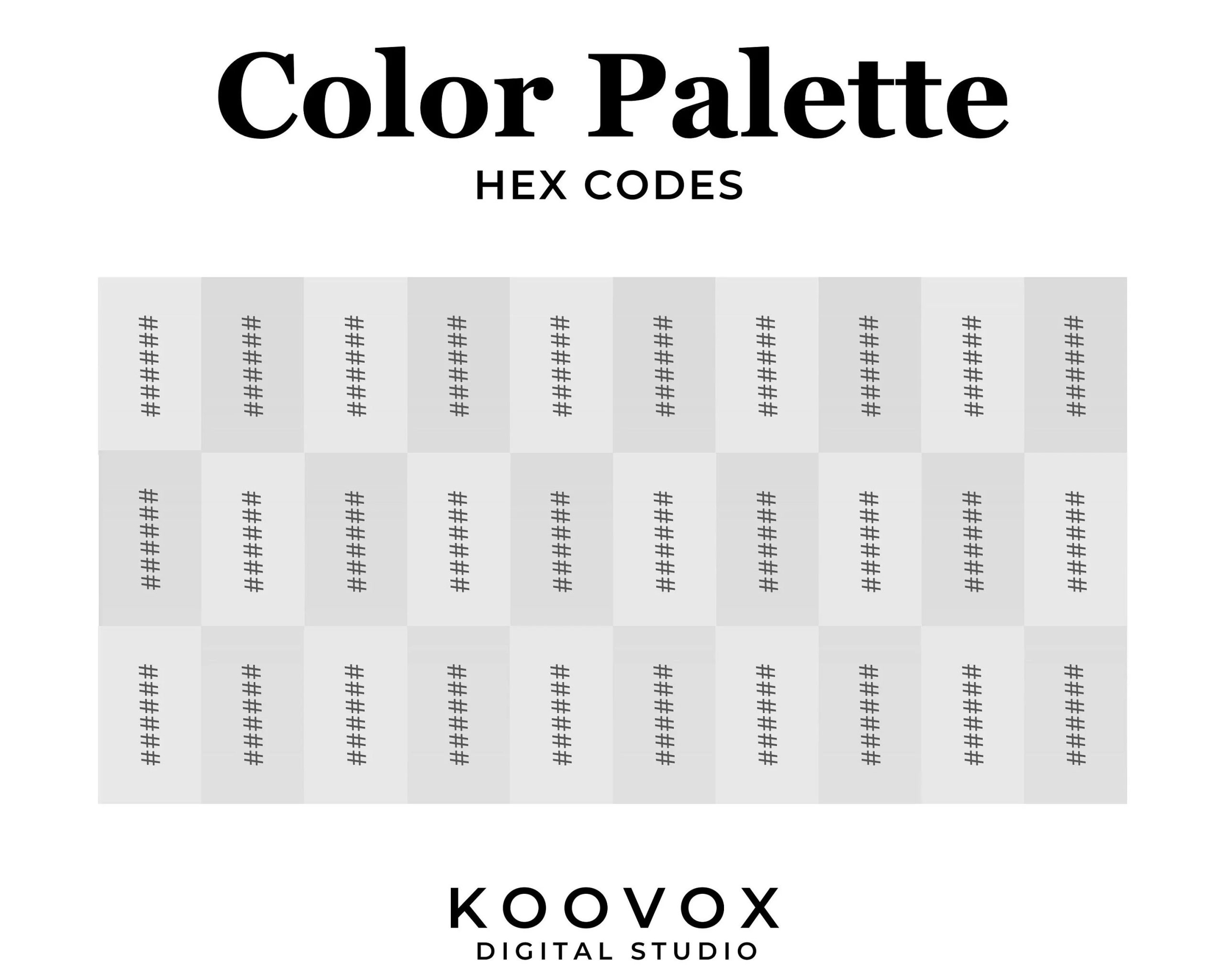Ever wished you could capture the essence of a perfect beach day in your designs? This guide dives deep into the world of beachy color palettes, providing hex codes, design tips, and inspiration to transform your projects with the serene beauty of the coast. From classic ocean hues to vibrant coral reefs and tranquil sunsets, we’ll explore the diverse spectrum of coastal colors and how to use them effectively.
Coastal Color Palettes: A Spectrum of Seaside Hues
Classic Coastal Charm: Evoking Tranquility
Classic beachy color palettes evoke a sense of calm and serenity, reminiscent of quiet mornings by the ocean. These palettes typically feature soft blues, sandy neutrals, and hints of seafoam green. They’re perfect for creating a peaceful and inviting atmosphere.
| Palette Name | Hex Codes | Description |
|---|---|---|
| Tranquil Shores | #E0F2F7, #90CAF9, #42A5F5, #1E88E5, #1565C0 | Soft blues and white evoke the tranquility of calm waters and pristine sand. |
| Sun-Kissed Sands | #F5F5DC, #FAEBD7, #FFE4C4, #F0E68C, #FFFFE0 | Warm beige and cream tones capture the feeling of sun-drenched beaches. |
| Seafoam Serenade | #98F5FF, #8EE5EE, #7FF6EE, #76DDFB, #66CDAA | Light greens and blues create a breezy, natural feel, reminiscent of seafoam. |
Beyond the Expected: Vibrant Coastal Accents
While classic palettes are timeless, exploring bolder hues can add depth and personality to your beach-themed designs. Think vibrant corals, deep turquoise, and fiery sunset tones. These unexpected additions can evoke the energy and excitement of a tropical paradise.
| Palette Name | Hex Codes | Description |
|---|---|---|
| Coral Reef | #FF7F50, #F08080, #FA8072, #E9967A, #FFA07A | Warm coral hues capture the vibrancy of a coral reef. |
| Tropical Escape | #00CED1, #40E0D0, #AFEEEE, #E0FFFF, #F0F8FF | Bright turquoise and blues evoke the clear waters of a tropical escape. |
| Sunset Sands | #FFA07A, #FA8072, #E9967A, #CD5C5C, #DC143C | Fiery oranges, reds, and deep crimson capture the dramatic beauty of a sunset. |
Designing with Intention: Color Psychology and Accessibility
Choosing the right beachy color palette involves understanding color psychology. Blues are often associated with tranquility and trust, while yellows can convey joy and optimism. Greens frequently suggest growth and harmony. Consider the message you want to convey and the emotional response you want to evoke. [https://www.wavesold.com/beige-high-gloss-cabinets]
Equally important is accessibility. Ensure sufficient color contrast between elements for users with visual impairments. Online contrast checkers can help you verify that your chosen palette meets WCAG (Web Content Accessibility Guidelines) standards.
From Inspiration to Application: Bringing Your Palette to Life
Once you’ve chosen your palette, experiment with different combinations using mood boards. This allows you to see how colors interact and create various visual effects. Apply your palette to your designs, whether it’s a website mockup, a social media graphic, or even a room makeover.
Consider seasonal and geographic influences. Muted tones might suit a winter beach scene, while brighter hues evoke summer. The Mediterranean coast has a different color profile than the Caribbean. These nuances add depth and authenticity. [https://www.wavesold.com/best-tile-cut-for-minimum-grout]
Deep Dive into Coastal Colors: Expanding Your Horizons
The Essence of the Coast: Defining the Palette
The coastal palette encompasses a broader spectrum than just blue and white. Imagine the soft greens of seaweed, the warm browns of driftwood, the delicate pinks of seashells, and the vibrant hues of tropical flowers and beach umbrellas. The best coastal palette is the one that reflects your unique vision.
Consider the mood you want to create. Blues and greens evoke calmness, yellows and oranges bring energy, and soft pinks and lavenders suggest romance. Hex codes and RGB values ensure accurate color representation across different mediums.
Regional and Seasonal Variations: Adding Depth and Authenticity
Coastal colors vary across the globe. The Mediterranean coast, with its terracotta and olive greens, has a warmer feel than the cooler, misty grays of the Pacific Northwest. Seasonal shifts also influence color palettes. Muted tones capture the quiet beauty of a winter beach, while vibrant hues evoke the energy of summer. Exploring these regional and seasonal nuances can add depth and authenticity to your designs.
Sustainable Style: Embracing Natural Dyes
Consider incorporating natural dyes derived from seaweed, plants, or shellfish. This eco-friendly approach connects your designs with nature and creates unique, sustainable pieces.
Dynamic Designs: The Power of Gradients
Gradients can enhance your beach-themed designs by adding depth and movement. A subtle shift from sandy beige to ocean blue can mimic the meeting of sand and sea, creating a captivating visual effect.
Decoding “Reef” Color: A Spectrum of Hues
The term “reef” encompasses a range of colors, not just a single hex code. While #F7B190 is often associated with reef, consider exploring #c5ff9e and #befe83 for brighter, more vibrant options. For coral-specific hues, #FF8266 and #fd7c6e offer bolder choices.
| Hex Code | RGB Value | CMYK (approx.) | HSV/HSB (approx.) |
|---|---|---|---|
| #F7B190 | (247, 177, 144) | (0, 28, 42, 3) | (19°, 42%, 97%) |
| #c5ff9e | (197, 255, 158) | (23, 0, 38, 0) | (88°, 38%, 100%) |
| #befe83 | (190, 254, 131) | (25, 0, 49, 0) | (78°, 49%, 99%) |
| #FF8266 | (255, 130, 102) | (0, 49, 60, 0) | (14°, 60%, 100%) |
| #fd7c6e | (253, 124, 110) | (0, 51, 57, 0) | (6°, 57%, 99%) |
These hex codes are starting points. Experiment with online color pickers to find the perfect “reef” hue for your project.
The Future of Coastal Palettes
Current trends point toward earthy, natural tones combined with vibrant pops of coral or turquoise. As design evolves, so too will coastal color palettes. Stay adaptable, explore emerging trends, and let your creativity flow. The possibilities are as vast as the ocean itself.
- Best Finish for Butcher Block Countertops: Choosing the Right Option - December 30, 2025
- Seal for butcher block: Find the best food-safe finish - December 29, 2025
- Finishes For Butcher Block Counters: Choosing The Right Food-Safe Option - December 28, 2025










